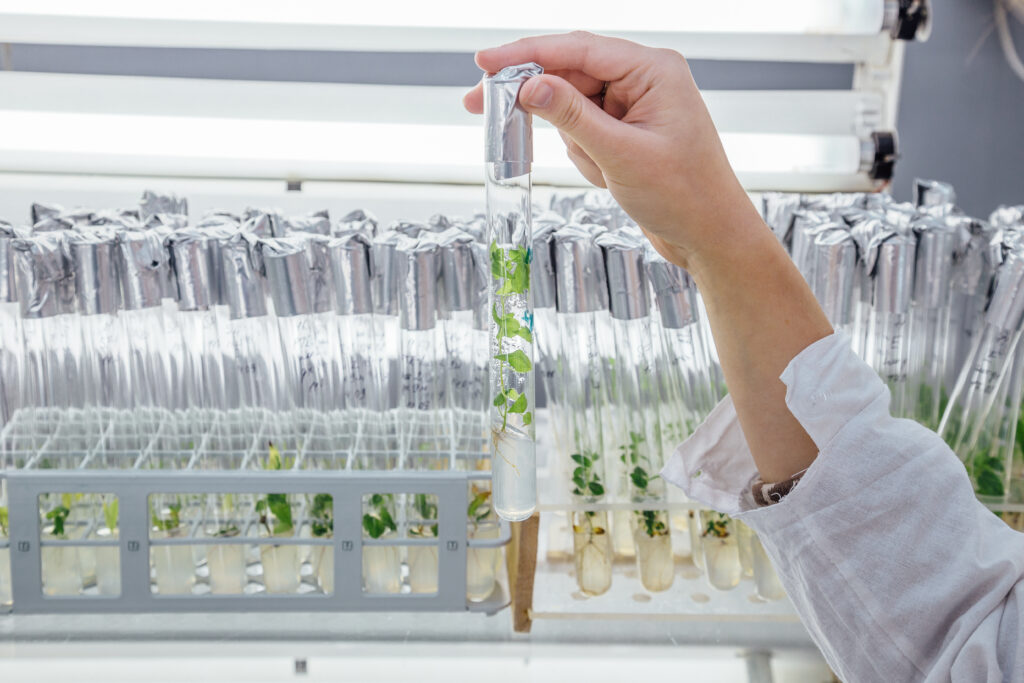Stem cell therapy has been making waves in medical news. There’s potential that, with advancements in stem cell therapy, we can work to regrow organs, or even kickstart bone regeneration – to the point where we may be able to help people naturally regrow their permanent teeth if they were lost, damaged, or decayed.
The biggest setback to stem cell therapy is the lack of available stem cells, particularly ones that suit a patient’s condition. The most exciting advancement in stem cell therapy today is in genetic reprogramming. Induced pluripotent stem cells (iPSCs) can become any cell, without the ethical dilemma that comes with using embryonic stem cells.
The issue is the cost, and the availability of stem cells in the first place.
With the number of cells limiting how widespread stem cell treatments can be (currently there are not enough for everyone who could benefit from this treatment option to get them), you may wonder if there are other options. Can you harvest stem cells from plants? This guide helps you understand everything you need to know about stem cells, their sources, and their limits:
Can You Harvest Stem Cells from Plants?
The simple answer is no. Stem cells are specialized cells that are only found in animals, including humans. They are not found in plants at all. Instead, plants use what are known as meristem cells, which help with their own unique growth and development.
While plants hold many secrets for our health, stem cells are not one of them.
Even using stem cells from another species isn’t ideal, since those stem cells are designed to become cells needed by a different species, not human.
That’s why the best option for stem cell treatments is still to source stem cells from humans.
Yes, this does mean that the number of stem cells we can source is limited. It also means that the stem cell therapy cost will remain much higher than other treatments, due to the limited number of stem cells available and the multi-step process to extract, screen, purify, and then store the cells.
What Can Stem Cells Even Do?
Why go through so much effort to obtain stem cells? To understand that, you first need to understand what are stem cells.
Stem cells are progenitor cells. They can become other cells if needed. As embryos, our stem cells can become any of the 200+ cells in the human body. Stem cells are used to create baby teeth when we are growing, then our permanent teeth, later on, are there to help us regenerate tissue after we fall and scrape a knee, and so much more.
Thanks to stem cell research, we are now unlocking the ways that we can use stem cell injections to help enhance our health and recover from previously untreatable conditions.
Just take the work of Dr. Jeremy Mao, a Columbia Medical University Medical Center professor, and his work published in the Journal of Dental Research. Thanks to stem cell dental implants, dental procedures may be completely revolutionized.
Currently, those who have lost their adult teeth have limited options when it comes to dental procedures. Thanks to stem cell dental implants, however, there may be a way to kickstart bone regeneration and even grow teeth back without implanting one.
This is done by homing stem cells into a scaffold. Dr. Mao’s ingenious method (currently only done on animals) has shown that a tooth may be grown orthotopically in the socket.
In short, stem cells may help people regrow teeth. The ability to regrow teeth isn’t even the limit of what stem cells can do in the future, with organ regeneration at the top of the list for most researchers.
Stem Cell Therapy Today
What are stem cell injections capable of today? Currently, they’re used to bring down inflammation in the body, and help with regeneration. This means that those with issues like arthritis can find relief, those with Multiple Sclerosis can gain more mobility, and those with injuries may be able to heal better than ever before.
We here at BioXcellerator use the best treatments and methods available today, and are constantly working towards better treatments. As soon as iPSCs become readily available, we’ll be the first to look into adding them to our treatment roster.
For now, we offer stem cells derived from Wharton’s Jelly at all of the locations we cover. These stem cells are less likely to be rejected by your immune system, which means they can be put to work quickly.
They aren’t currently capable of regrowing teeth from scratch, but that doesn’t mean these cells can’t help you in other ways.
· Regrow Tissue
Our bodies are much better at regrowing tissue, which is why current stem cell treatment can help those with wounds, burns, or even internal damage on a cellular level. For example, stem cells can help those with arthritis by repairing the cartilage between the joints. This works because stem cells can become other cells, meaning there are more materials to work with, so to speak.
· Reduce Inflammation
Inflammation makes it harder for your body to function, and it is also painful. The fact that stem cells are naturally able to reduce inflammation can mean a lot of things. It can help those with Rheumatoid arthritis, for example. It may even be able to help you keep your existing teeth, if your gums are currently infected and inflamed (though stem cells should never be the sole treatment option if you have gum disease).
In short, the possibilities of stem cells today is massive. Just because we can’t extract stem cells from a readily available source like plants does not mean it doesn’t have massive potential. Instead, it means we must focus on genetic reprogramming and ways to encourage more cell division outside the body to increase stell cell count.
Get in Touch With Our Team
There’s a bright future on the horizon, yes, but that doesn’t mean you need to wait. Instead, you can get in touch with our team, and book your appointment today.


